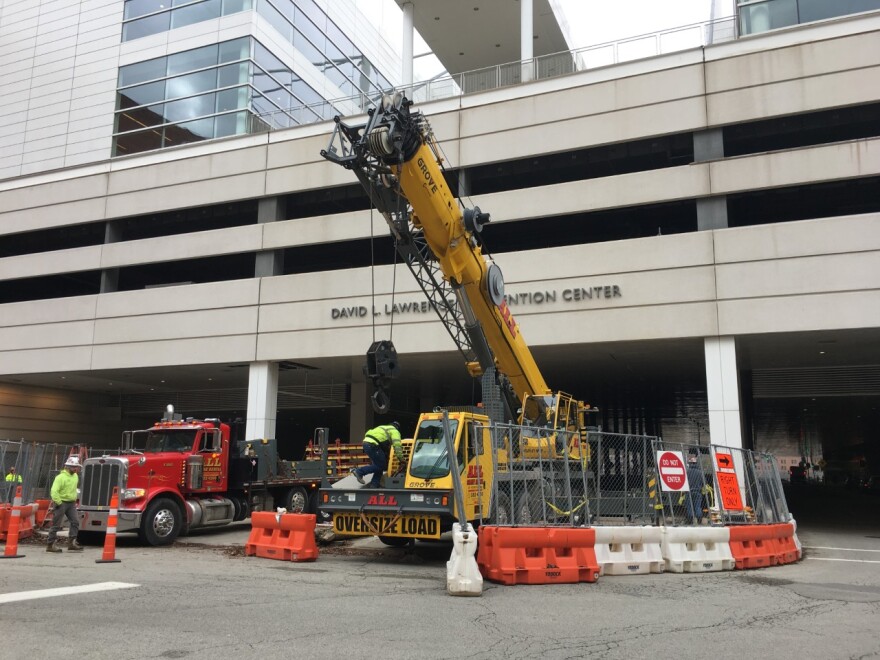Construction across Pennsylvania will be allowed to resume in-person operations on Friday. The commonwealth was one of only a few states that idled the entire industry before making exceptions for some road and bridge work.
The shutdown was a nightmare, said Philip Ameris, president of the Laborers' District Council of Western PA.
“We have 15,000 members across 33 counties,” he said. “Just to give you a synopsis of who was still working, who wasn’t: 9,000 of the 15,000 were affected by layoffs.”
Ameris said meeting new guidelines from the state and city will be an adjustment, but people are just glad to be going back to work.
“They’ll do what’s right and make the contractor successful and get the job done,” he said.
Shortly after the shutdown began, contractors began trying to find ways to safely go back to work, and sharing those ideas, said Rich Barcaskey, who leads the Constructors Association of Western Pennsylvania. The association represents the heavy and highway construction industries.
“They really came up with [innovative] things,” he said. “One of our contractors came up with a handwashing station built on the back of a pickup truck. There was a button that you press with your knee, then the water came out and then there was hand sanitizer and soap.”
While a portable toilet is a job site staple, sanitation stations aren’t as common, said Barcaskey. State guidance requires all projects to provide hand-washing and sanitizing stations, sanitize high-risk areas, such as equipment steering wheels, and maintain social distancing.
A lot of construction work is already socially-distanced, said Karina Ricks, head of Pittsburgh’s Department of Mobility and Infrastructure. For all work being done for the city, contractors are required to submit a detailed safety plan.
“And that plan spells out what the protocols on that job site are going to be,” Ricks said, including ways for workers to raise concerns if they have them. “We have protocols in place for if there is a confirmed positive case at the job site.”
Under the state’s guidelines, contractors are required to screen workers as they come to the job site and send home anyone with COVID-19 symptoms.
With so much uncertainty and fear still present, some people worried it would be hard to get employees back to work, said Barcaskey. A survey his organization conducted found 70 percent of their members were willing to go back to work.
“It seems like people aren’t as afraid as they were maybe a month ago, it’s nice to see that,” he said. “I don’t know that we’ll ever return to completely normal.”
While construction can begin again, the reopening of other crucial parts of the industry remains uncertain. Training centers provide classes and certification programs, but they’ve been closed since March, said Ameris of the Laborers' District Council.
“A lot of the certifications the guys would be required to have on the job … they expired in April,” he said.
The Department of Labor and Industry extended certification deadlines to allow people to go back to work, but training centers will need to reopen before the time is up. Ameris wonders if centers will be treated as a regular educational institution or if they’ll need to get a variance to resume operations. He said they’re considering ways to reduce class size to allow for social distancing, and whether they can offer more online classes.
“But it’s not all classroom training, there’s a lot of hands-on training,” he said. “You can’t teach a guy to tie rods on the phone or on a computer.”




